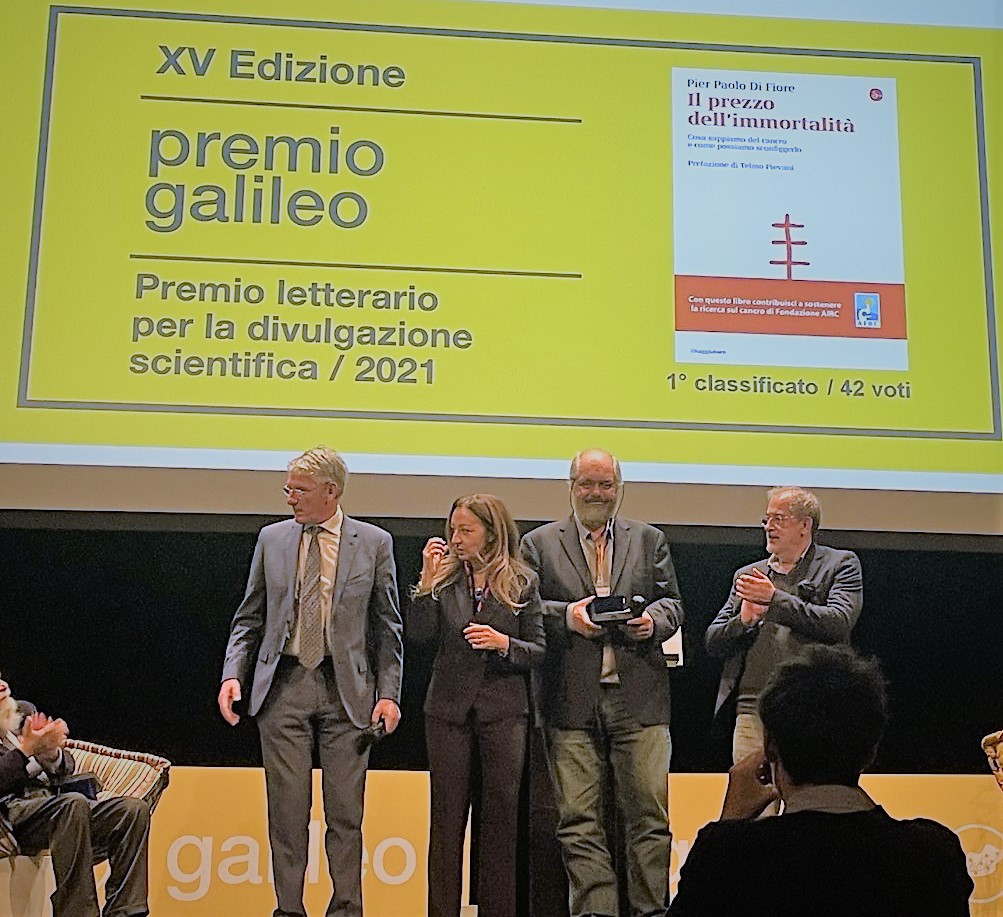
On October 17th, Pier Paolo Di Fiore won with his book “Il prezzo dell’immortalità. Cosa sappiamo del cancro e come possiamo sconfiggerlo” the 2021 Galileo Award for science communication.
Pier Paolo Di Fiore is full professor at the University of Milan, director of the "Molecular Medicine for Care Program (MMC)" at IEO, director of the “Novel Diagnostics Program” and of the “Endocytosis, signalling and cancer” lab at the DEO, where he focuses on exploring the molecular mechanisms ruling endocytosis of EGF receptor in physiological and pathological conditions, characterizing the involvement of endocytic proteins in the biology of cancer cells and the acquisition of cancer stem cells features and metastatic traits, characterizing and validating new markers and therapeutic targets. In the past he worked in the US, at the National Cancer Institute, and has been scientific director of IFOM.
In the recent years people are becoming more and more aware of the key importance of scientific communication, the importance of disseminating the results of research, not only by sharing them with colleagues through scientific peer-review publications or conferences, but also with the general audience, in a straightforward and −why not− entertaining way, to spread knowledge, raise people awareness towards different subjects and at the same time generate curiosity about the research world. Amid the pandemic, the importance of these concepts has become even more evident.
Pier Paolo Di Fiore does that in his book, covering concepts such as the origin of cancer, metastases, targeted drugs, prevention, accurately and with a simple wording. He decided to donate the book’s royalties to AIRC foundation.
What can you tell us about the book? «It is a transversal story of the different “cancer universes”, namely the individual facets related to cancer − concerning the patient’s and family’s psychological aspects; the social facets − regarding public health; the anthropological facets − concerning fake news diffusion; the financial aspects revolving around cancer. And, above all, the scientific and medical facets − related to cancer research and its progress. To deal with all these aspects together, I tried to write analyzing the “cancer reasons” (I mean the molecular cancer reasons), letting cancer speak in first person from time to time. I think that’s what research is doing nowadays: understanding the “cancer reasons” to find increasingly effective therapeutic approaches.»
What makes you more proud of receiving this award? «Being selected by a jury of young people. We are frequently worried that cancer is not a topic young people may care about, which may lead to poor awareness of issues related to prevention and cancer-predisposing lifestyles. However, young people's interest towards cancer, and health issues in general, is probably greater than we think. We just need to find a way to reach them and stimulate their interest.»
Congratulations!
And you, have you already read the book?